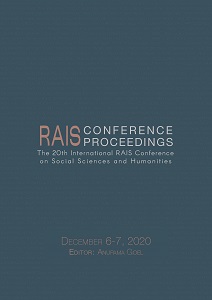Heterodox Economic Cycles Theory
Heterodox Economic Cycles Theory
Author(s): Julia M. Puaschunder
Subject(s): Economic development, Socio-Economic Research
Published by: Scientia Moralitas Research Institute
Keywords: Affect; Collective moods; Communication; Consumption;
Summary/Abstract: Overall the following article innovatively paints a novel picture of the mass psychological underpinnings of business cycles based on information flows in order to recommend how certain communication strategies could counterweight and alleviate the building of disastrous financial market mass movements. Acknowledging that human beings are connected to and interact with each other in families, ties and larger networks of states, nations and intergovernmental institutions, studying the role of information in building socially-constructed economic correlates promises to explain how market outcomes are developed in the social compound and can be guided by media communication. Addressing problems of the neoclassical assumption of perfect information markets through the lens of ‘real competition,’ the following paper will specifically unravel how contemporary media communication produces certain types of price expectations that form consumption patterns leading to collectively-shared economic outcomes. An introduction to the history of economic cycles will lead to the analysis of the role of information in creating economic booms and busts in the age of globalization. Applying emergent risk theory onto economic fluctuations will serve as an innovative way to explain how and what information represented in the media creates economic ups and downs. Linguistic roots of news about the economy are aimed at shedding light on how media representations and temporal foci echo in economic correlates and shape market outcomes. As business cycles are a collective phenomenon, group interactions’ potential contribution to create business cycles will innovatively be outlined and the role of information flows among groups in creating price expectations unraveled. Business cycles will also be shown to obey some kind of natural complexity, as for being whimsically influenced by socio-historic and political trends. Recommendations how to create more stable economic systems by avoiding emergent risks and communicating market prospects more cautiously will be given in the discussion followed by a prospective future research outlook and conclusion.
Book: Proceedings of the 20th International RAIS Conference on Social Sciences and Humanities
- Page Range: 108-118
- Page Count: 11
- Publication Year: 2020
- Language: English
- Content File-PDF

